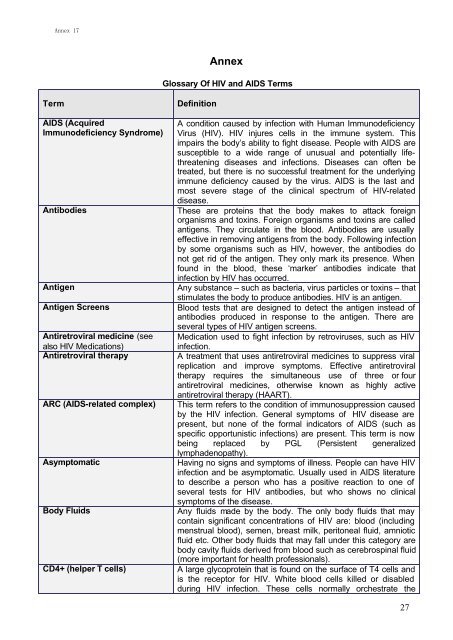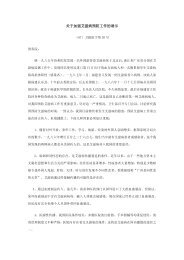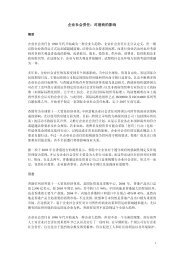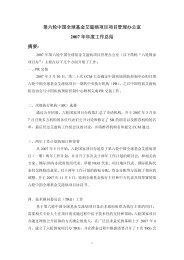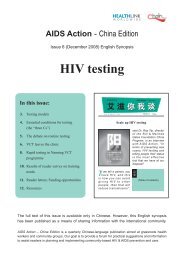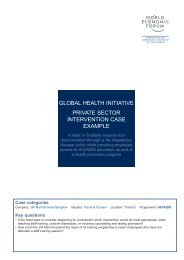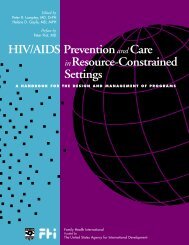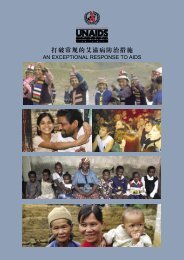What is HIV and AIDS?
What is HIV and AIDS?
What is HIV and AIDS?
Create successful ePaper yourself
Turn your PDF publications into a flip-book with our unique Google optimized e-Paper software.
Annex 17<br />
Term<br />
<strong>AIDS</strong> (Acquired<br />
Immunodeficiency Syndrome)<br />
Annex<br />
Glossary Of <strong>HIV</strong> <strong>and</strong> <strong>AIDS</strong> Terms<br />
Definition<br />
A condition caused by infection with Human Immunodeficiency<br />
Virus (<strong>HIV</strong>). <strong>HIV</strong> injures cells in the immune system. Th<strong>is</strong><br />
impairs the body’s ability to fight d<strong>is</strong>ease. People with <strong>AIDS</strong> are<br />
susceptible to a wide range of unusual <strong>and</strong> potentially lifethreatening<br />
d<strong>is</strong>eases <strong>and</strong> infections. D<strong>is</strong>eases can often be<br />
treated, but there <strong>is</strong> no successful treatment for the underlying<br />
immune deficiency caused by the virus. <strong>AIDS</strong> <strong>is</strong> the last <strong>and</strong><br />
most severe stage of the clinical spectrum of <strong>HIV</strong>-related<br />
d<strong>is</strong>ease.<br />
Antibodies These are proteins that the body makes to attack foreign<br />
organ<strong>is</strong>ms <strong>and</strong> toxins. Foreign organ<strong>is</strong>ms <strong>and</strong> toxins are called<br />
antigens. They circulate in the blood. Antibodies are usually<br />
effective in removing antigens from the body. Following infection<br />
by some organ<strong>is</strong>ms such as <strong>HIV</strong>, however, the antibodies do<br />
not get rid of the antigen. They only mark its presence. When<br />
found in the blood, these ‘marker’ antibodies indicate that<br />
infection by <strong>HIV</strong> has occurred.<br />
Antigen Any substance – such as bacteria, virus particles or toxins – that<br />
stimulates the body to produce antibodies. <strong>HIV</strong> <strong>is</strong> an antigen.<br />
Antigen Screens Blood tests that are designed to detect the antigen instead of<br />
antibodies produced in response to the antigen. There are<br />
several types of <strong>HIV</strong> antigen screens.<br />
Antiretroviral medicine (see Medication used to fight infection by retroviruses, such as <strong>HIV</strong><br />
also <strong>HIV</strong> Medications)<br />
infection.<br />
Antiretroviral therapy A treatment that uses antiretroviral medicines to suppress viral<br />
replication <strong>and</strong> improve symptoms. Effective antiretroviral<br />
therapy requires the simultaneous use of three or four<br />
antiretroviral medicines, otherw<strong>is</strong>e known as highly active<br />
antiretroviral therapy (HAART).<br />
ARC (<strong>AIDS</strong>-related complex) Th<strong>is</strong> term refers to the condition of immunosuppression caused<br />
by the <strong>HIV</strong> infection. General symptoms of <strong>HIV</strong> d<strong>is</strong>ease are<br />
present, but none of the formal indicators of <strong>AIDS</strong> (such as<br />
specific opportun<strong>is</strong>tic infections) are present. Th<strong>is</strong> term <strong>is</strong> now<br />
being replaced by PGL (Pers<strong>is</strong>tent generalized<br />
Asymptomatic<br />
lymphadenopathy).<br />
Having no signs <strong>and</strong> symptoms of illness. People can have <strong>HIV</strong><br />
infection <strong>and</strong> be asymptomatic. Usually used in <strong>AIDS</strong> literature<br />
to describe a person who has a positive reaction to one of<br />
several tests for <strong>HIV</strong> antibodies, but who shows no clinical<br />
symptoms of the d<strong>is</strong>ease.<br />
Body Fluids Any fluids made by the body. The only body fluids that may<br />
contain significant concentrations of <strong>HIV</strong> are: blood (including<br />
menstrual blood), semen, breast milk, peritoneal fluid, amniotic<br />
fluid etc. Other body fluids that may fall under th<strong>is</strong> category are<br />
body cavity fluids derived from blood such as cerebrospinal fluid<br />
(more important for health professionals).<br />
CD4+ (helper T cells) A large glycoprotein that <strong>is</strong> found on the surface of T4 cells <strong>and</strong><br />
<strong>is</strong> the receptor for <strong>HIV</strong>. White blood cells killed or d<strong>is</strong>abled<br />
during <strong>HIV</strong> infection. These cells normally orchestrate the<br />
27


